Police Gazette publisher Steven Westlake made the trip to Biloxi, Mississippi, on August 25th, not just because he wanted to; it was because he had to. History demanded it, both past history and future history. For a Police Gazette publisher, it was a pilgrimage to Mecca and the second coming combined.
First stop, the site of the February 7, 1882, championship bare-knuckle match between John L. Sullivan and Paddy Ryan in Mississippi City, four miles from the scene of last Saturday’s action. This fight established Sullivan for the first time as–at a minimum–the American champion of all boxing. And it established the Police Gazette as the first boxing sanctioning organization.
The bout had been organized and sanctioned by Richard K. Fox, the Police Gazette publisher, after Fox had become frustrated by the roadblocks preventing a real championship match from happening. Competitive professional boxing was, after all, illegal. In 1881, Fox declared he and the Police Gazette were taking pro boxing under their wing and, for the first time, establishing rules under which championships were to be conducted. One rule was that championship fights had to be under London Prize Ring rules, i.e., bare knuckle.
The Police Gazette remained the custodian of world bare-knuckle championships for the rest of the decade. But by the early 1890s, gloved boxing was becoming legal and accepted. And in 1894 the Gazette declared it would no longer insist that its championship bouts be fought bare knuckle. Fast forward to this year when bare knuckle finally became legal on the state level, in Wyoming and Mississippi so far. The BKFC 2 event at the Mississippi Coast Coliseum on August 25th marked the return of sanctioned bare knuckle boxing to where it started in 1882, in a field off Texas Avenue in little Mississippi City.
At BKFC 2, Bec Rawlings, who’d been declared Police Gazette World Women’s Featherweight Champion after her showing at BKFC 1 in Wyoming, defended her title in a close fight with Britain Hart. Rawlings was presented with the belt for the first time, which made it the first time a Police Gazette belt has been presented to the victor after a bare-knuckle championship bout since the 1880s. Bobby Gunn, who similarly holds a post facto Police Gazette belt, will get to defend his this October.
Here are some scenes and images from Mr. Westlake’s trip:
Watch this short video of Mr. Westlake visiting the site of the first Police Gazette sanctioned bare-knuckle championship, between John L. Sullivan and Paddy Ryan on February 7, 1882, in Mississippi City. Visited a few hours before the most recent Police Gazette bare-knuckle championship bout took place at the Mississippi Coast Coliseum four miles away.
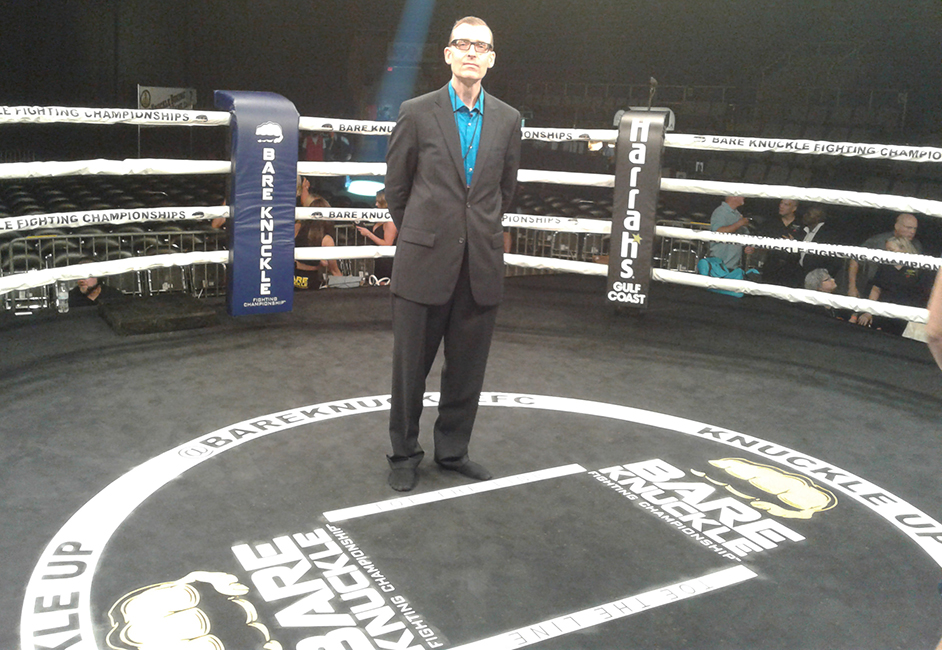 Mr. Westlake stands in the specially designed ring, called the “squared circle.”
Mr. Westlake stands in the specially designed ring, called the “squared circle.”
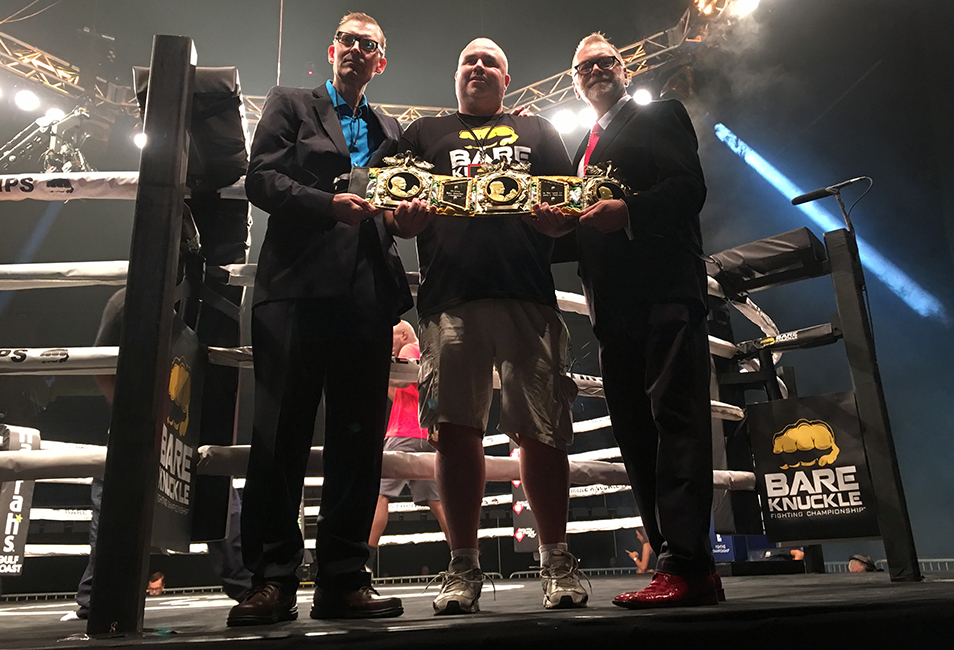 Gary Grant Jr., the designer of the ring, stands between Mr. Westlake and Scott Burt, president of the Bare Knuckle Boxing Hall of Fame, which manages the Police Gazette belts.
Gary Grant Jr., the designer of the ring, stands between Mr. Westlake and Scott Burt, president of the Bare Knuckle Boxing Hall of Fame, which manages the Police Gazette belts.
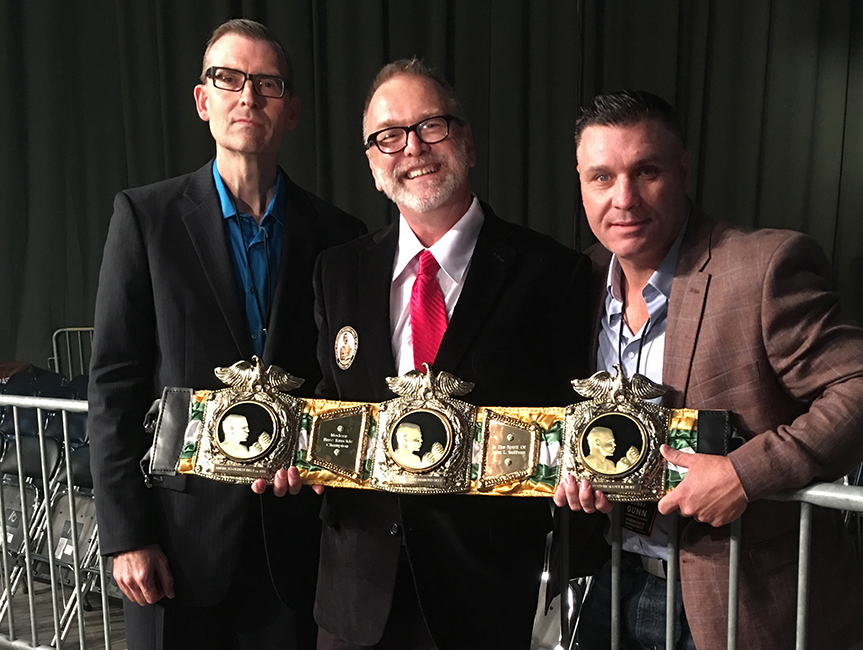 Mr. Burt stands between Mr. Westlake and Police Gazette World Heavyweight champ Bobby Gunn, holding the belt later presented to Bec Rawlings.
Mr. Burt stands between Mr. Westlake and Police Gazette World Heavyweight champ Bobby Gunn, holding the belt later presented to Bec Rawlings.
 Mr. Westlake and Mr. Gunn in a serious conversation about the past and future of championship bare-knuckle boxing.
Mr. Westlake and Mr. Gunn in a serious conversation about the past and future of championship bare-knuckle boxing.
 Sam Shewmaker greets his two boys following his narrow split-decision victory over Maurice Jackson. At left is former NFL player–and brother of Walter Payton–Eddie Payton who is now a member of the Mississippi Athletic Commission.
Sam Shewmaker greets his two boys following his narrow split-decision victory over Maurice Jackson. At left is former NFL player–and brother of Walter Payton–Eddie Payton who is now a member of the Mississippi Athletic Commission.
Finally, watch this video as Bec Rawlings is declared winner in her own split-decision victory and receives the Police Gazette belt, bringing full circle Police Gazette championships.
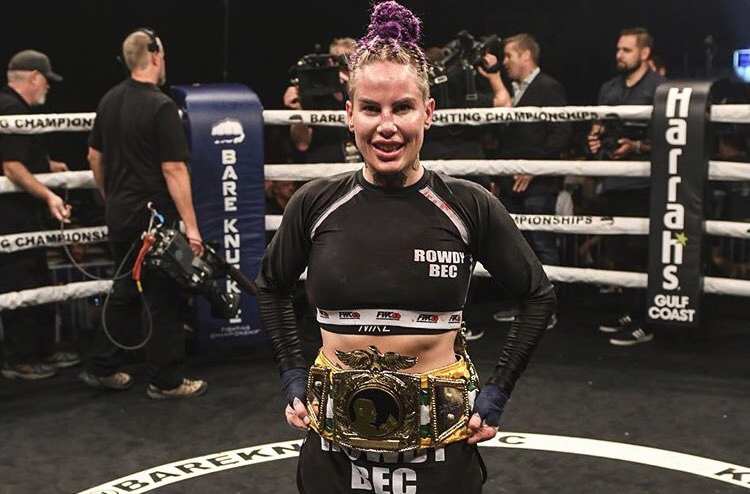 Bec Rawlings, Police Gazette Women’s World Featherweight Champion.
Bec Rawlings, Police Gazette Women’s World Featherweight Champion.

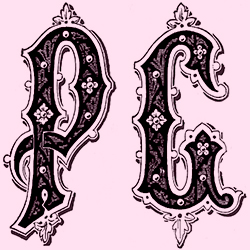
 The original Police Gazette heavyweight champion belt, made of solid silver and gold, inlaid with diamonds.
The original Police Gazette heavyweight champion belt, made of solid silver and gold, inlaid with diamonds.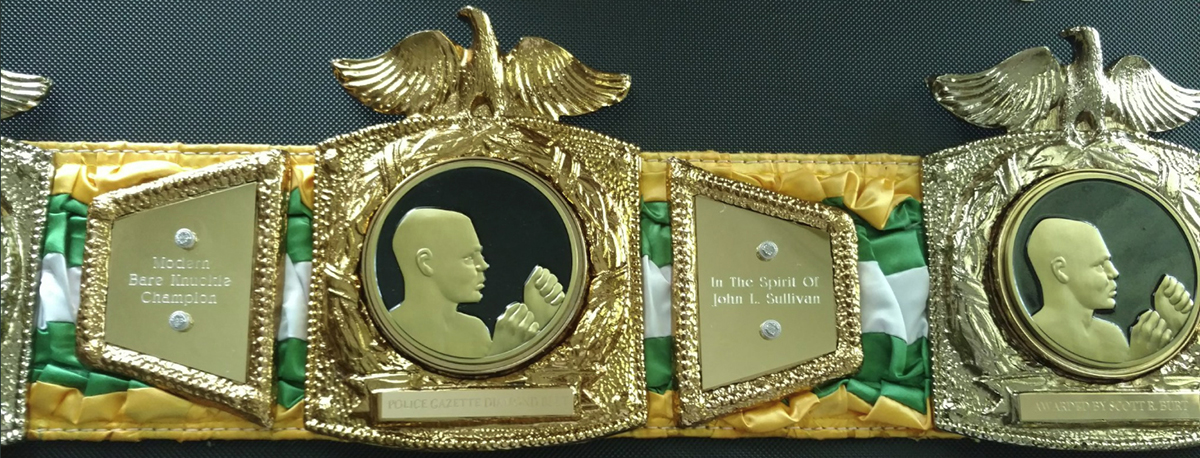 The new Police Gazette diamond belt, representing the championship of the world.
The new Police Gazette diamond belt, representing the championship of the world.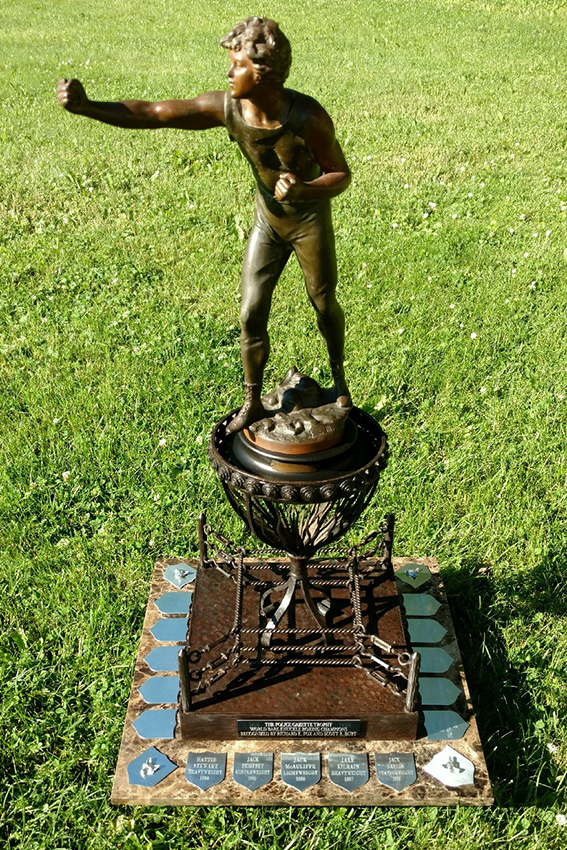 The Police Gazette championship trophy.
The Police Gazette championship trophy.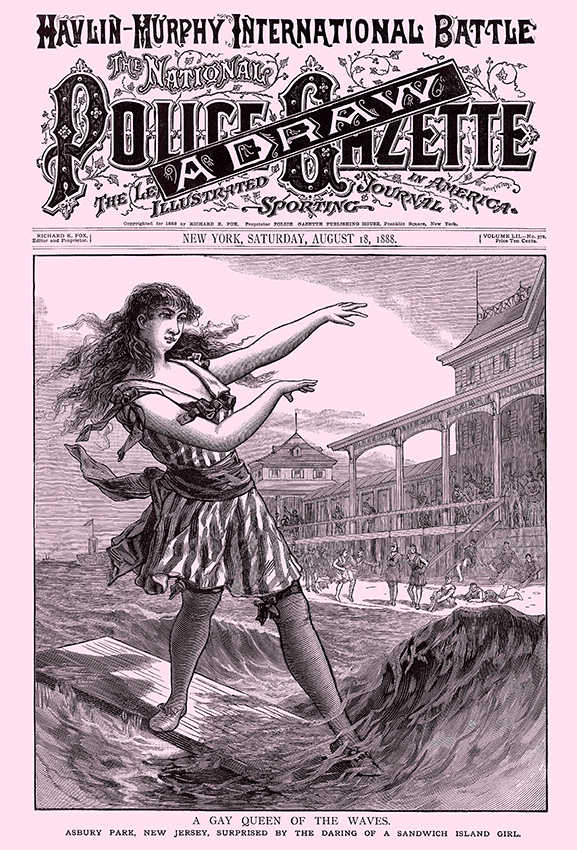
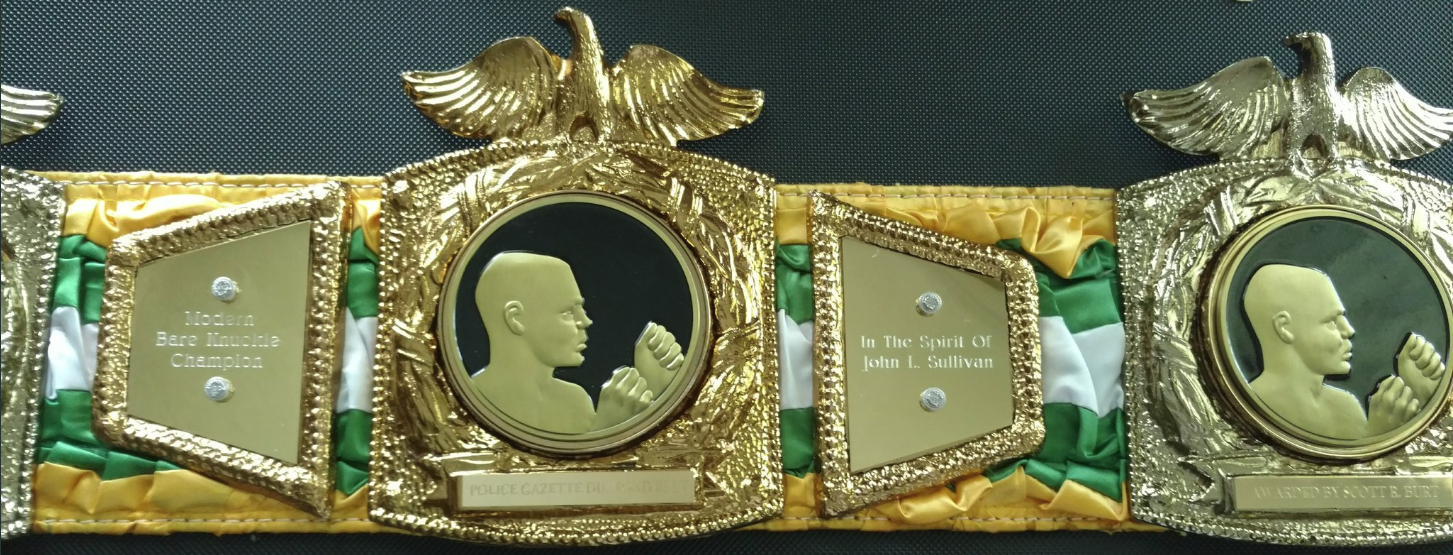 The new Police Gazette bare knuckle championship belt
The new Police Gazette bare knuckle championship belt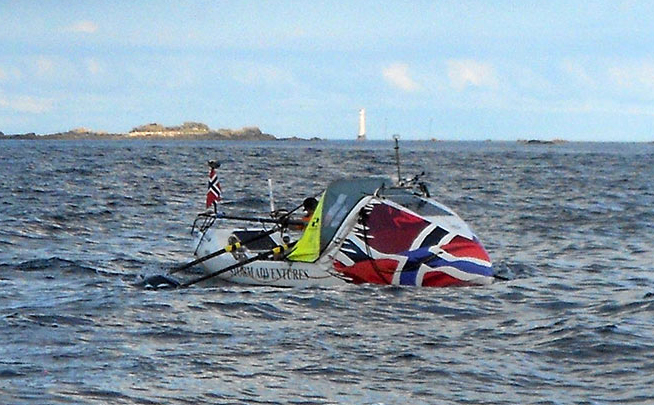 Stian Aker and Rune Malterud arrive at Saint Mary’s, Scilly Isles, in the morning of July 23, 2018.
Stian Aker and Rune Malterud arrive at Saint Mary’s, Scilly Isles, in the morning of July 23, 2018.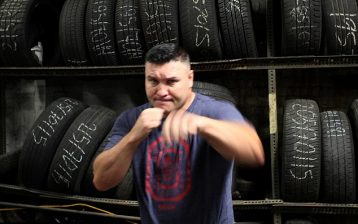 Police Gazette World Heavyweight champ Bobby Gunn
Police Gazette World Heavyweight champ Bobby Gunn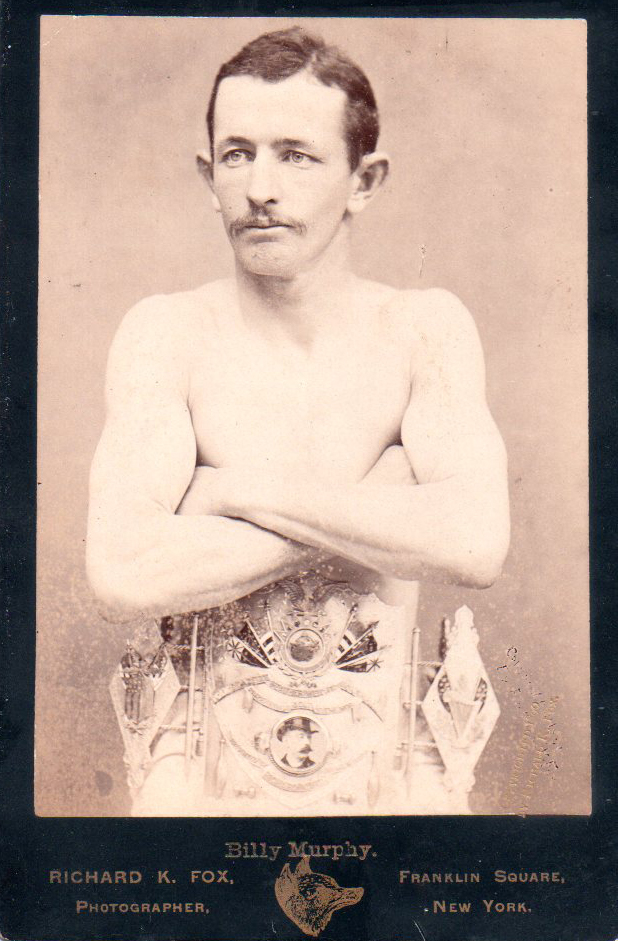 Torpedo Billy Murphy displays the Police Gazette Feather-weight Champion Prize Ring Belt of the World after having won it in a gloved match from Ike Weir, the last bare-knuckle holder.
Torpedo Billy Murphy displays the Police Gazette Feather-weight Champion Prize Ring Belt of the World after having won it in a gloved match from Ike Weir, the last bare-knuckle holder.
 The Police Gazette world-champion belt makes an appearance in the November 1, 1884, issue.
The Police Gazette world-champion belt makes an appearance in the November 1, 1884, issue.